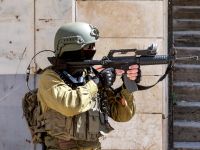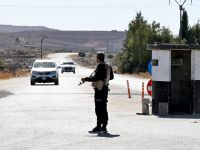The Iraqi Foreign Minister Naji Sabri left Baghdad for New York for the first talks with UN Secretary General Kofi Annan in more than a year. The sides are expected to discuss the return of UN weapons inspectors to Iraq.
Iraq and the United Nations "agreed to hold the second round of talks on March 7," Sabri told journalists at the airport before his departure. "I hope this new round of dialogue will focus on a serious plan to bring about the aspirations of the Iraqi people, notably the lifting of the UN embargo and a halt of the (US-British) attacks on Iraq," Sabri said.
The resumption of dialogue with the international community comes as part of a diplomatic campaign launched by Iraq, apparently aimed at averting US military action.
Meanwhile, Iraq's Vice President Taha Yassin Ramadan expressed his hope Monday that "this dialogue between Iraq and the United Nations will favor a conclusion that will put an end to the unjust embargo, far from the hegemony of the US administration."
Ramadan told the official INA news agency that Sabri and Annan "will exchange their points of view in a free and unconditional manner." "The United States is the enemy of Arabs and Muslims, who will not be sheltered from acts of terrorism that the evil US administration threatens to undertake under the pretext of the war against terrorism," Ramadan added.
However, Iraq could allow UN weapons inspectors back into the country if their mission was subject to a precise timetable, an Iraqi newspaper said Monday.
"One of the main reasons for our opposition to the return of inspectors is because the Americans want them to remain indefinitely, which means continuing the unfair embargo," said Babel., run by Iraqi President Saddam Hussein's elder son, Uday, according to AFP.
UN arms inspectors pulled out of Iraq in December 1998 amidst deadlock with Baghdad. Their withdrawal was followed by a US and British bombing blitz.
The United States, backed by Britain, has dropped broad hints that it will take military action against Iraq unless inspectors are allowed back into the country to check that Baghdad no longer has weapons of mass destruction.
The international community regularly accuses Iraq of hiding or developing such weapons, while Baghdad has insisted several times since the 1991 Gulf War that it has destroyed them.
In a related development, former Iraqi army chief of staff Nizar Khazraji has made a formal request to the Danish government to be allowed to travel to the United States to attend a meeting of exiled military officers, his lawyer Anders Josefsen said.
Khazraji, 62, has been living in Denmark since 1999 under a form of temporary asylum.
Last October, Khazraji was recognized in the street by a Kurdish refugee who claimed that he was behind attacks on Kurds in 1989 which left thousands dead.
Danish authorities briefly placed Khazraji under police surveillance, and the public prosecutor has launched an inquiry to see if he should be charged with war crimes for violating the Geneva Convention on the treatment of civilians in times of war.
Quoting Iraqi opposition sources in Damascus the Al-Hayat daily said last month that Khazraji had been picked by the United States to run Iraq after the overthrow of the Iraqi president. (Albawaba.com)
© 2002 Al Bawaba (www.albawaba.com)







